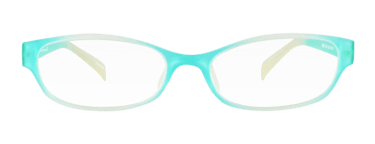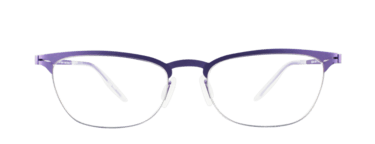Nutrition and Vision
 |
|
A healthy diet consists of a wide variety of fruits and vegetables. |
One of the best ways to nurture your vision, according to research, is to make use of the right nutrients and antioxidants which can lower the risk of eye disorders such as macular degeneration and cataracts.
Certain antioxidants have extra benefits. Vitamin A can lower the risk of blindness, vitamin C helps prevent the onset of glaucoma and omega-3 fatty acids may relieve the symptoms of dry eye syndrome.
Benefits of Micronutrients and Vitamins to the Eyes
There are a number of nutrients, vitamins, and minerals that have beneficial effects on vision and that can effectively protect your eyes from eye related diseases. Consuming the recommended daily allowance (RDA) of these nutrients will have huge benefits for your whole body, not just your eyes. The RDA, which was established by the Institute of Medicine, is the average everyday dietary level of intake of a certain nutrient to maintain health, specified for gender and age.
Even though the RDA is a useful basis, many eye care professionals recommend elevated daily intakes of some nutrients, especially for those who are at risk for eye problems. Below is a list of nutrients that are specifically needed for the development and maintenance of good vision.
mg = milligram – mcg = microgram – IU = International Unit
 |
|
Eggs are a good source of vitamin A. |
Vitamin A
Vitamin A specifically helps protect against dry eyes and night blindness. It can be acquired by consuming food sources such as milk, butter, eggs, chicken liver, beef, and cod liver oil. 3000 IU is the RDA for men while 2333 IU for women. For pregnant women 2567 IU is needed and 4333 IU for those that are breastfeeding.
Vitamin C
Vitamin C can help lower the risk of macular degeneration and cataracts. You can get this source naturally from red or green sweet peppers, oranges, apples, strawberries, cantaloupe, kale, broccoli, and many other fruits and vegetables. RDA for men is 90 mg and 70 mg for women. For pregnant women 80 mg is required and 120 mg for those breastfeeding.
Beta Carotene
Beta carotene helps protect you from dry eyes and night blindness. You can find it in foods like spinach, sweet potatoes, butternut squash, and carrots. There is no recommended daily allowance for it, but the majority of supplements have anywhere between 5000 and 25000 IU.
 |
|
Sunlight is the best way to obtain your daily dose of vitamin D. |
Vitamin D
Vitamin D can help reduce macular degeneration. This can be acquired from sources such as sardines, salmon, mackerel, orange juice and milk fortified with vitamin D, and many others. There is no set RDA for vitamin D but the American Academy of Pediatrics suggests 400 IU to children, infants, and adults. Sunlight is the best source of vitamin D; the right amount of UV radiation from the sun encourages the vitamin D stimulation in human skin. Daily exposure, albeit with proper protection against harmful UV rays, for a few minutes can guarantee adequate vitamin D production in the body.
Selenium
Advanced AMD risks can be lowered with selenium intake combined with vitamins C and E, and beta-carotene. You can get this mineral from sources such as seafood, like crab, salmon and shrimp, brown rice, and Brazil nuts. RDA is 55 mcg for adults and teens, 60 mcg for pregnant women, and 70 mcg for women that are breastfeeding.
Vitamin E
Vitamin E can lessen the advanced age-related macular degeneration (AMD) risks, especially when combined with vitamin C and carotenoids. This can be acquired from hazelnuts, sunflower seeds, and almonds. 19 mg is the RDA for breastfeeding women, and 15 mg for adults and teens.
 |
|
Crab meat contains zinc, which can help fight AMD. |
Zinc
Zinc can help lower the risk of night blindness and advanced AMD. You can acquire this mineral from food sources such as beef, oysters, crab, turkey, and other red meats and poultry.
Bioflavonoids
Bioflavonoids, like other nutrients, can help protect your eyes from macular degeneration and cataracts. This can be acquired from red wine, tea, bilberries, cherries, blueberries, soy products, and tea. There is no RDA for bioflavonoids.
Omega-3 Fatty Acids
Dry eyes and macular degeneration can be prevented with omega-3 fatty acids. The food sources include mackerel, herring, flaxseed oil, fish oil, salmon, and walnuts. There is no RDA for omega-3, but according to the American Heart Association approximately 1000 mg a day is recommended for cardiovascular benefits.
Generally, it is ideal to consume a majority of these nutrients through a healthy lifestyle and diet. Two servings of fish per week plus plenty of fruits and vegetables can do the trick to help keep your eyes, and the rest of your body, healthy. If you are planning to start taking vitamins, it is best to discuss with your doctor first. Too many supplements may be harmful, especially when taking them in combination with other medications. 
Recommended for you












